Examining the Book of Jeremiah 3
Mike Ervin
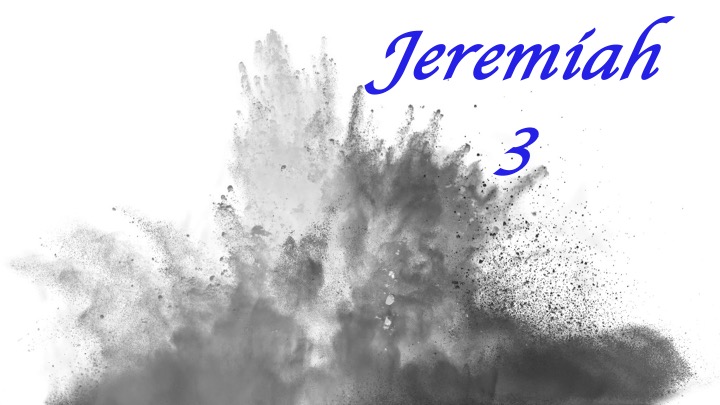
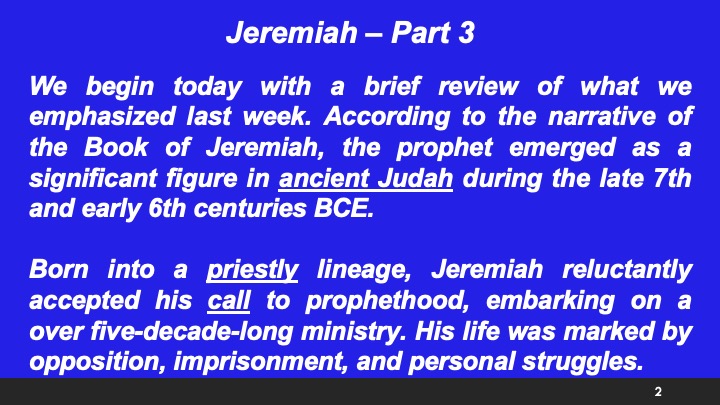
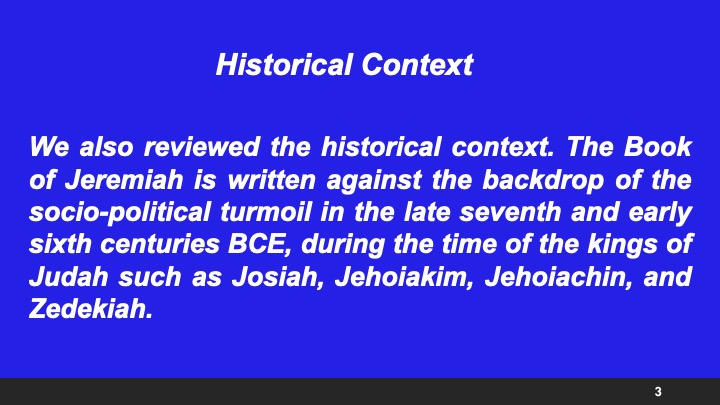
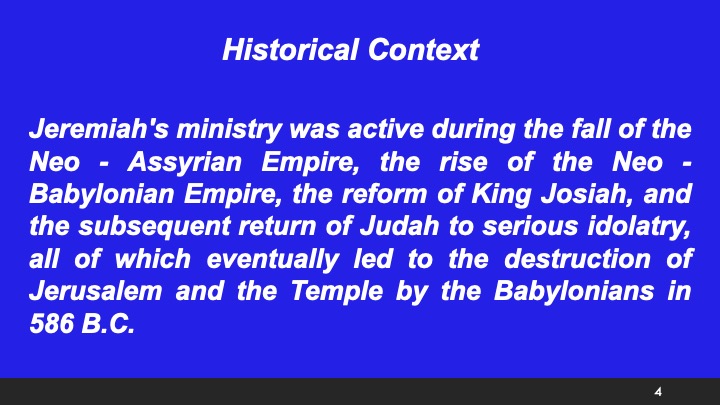
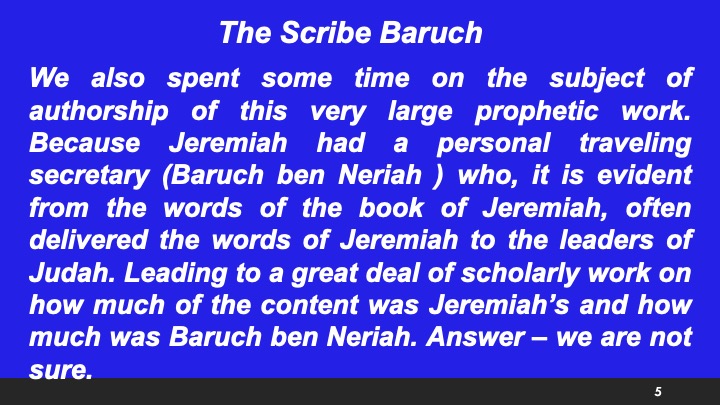
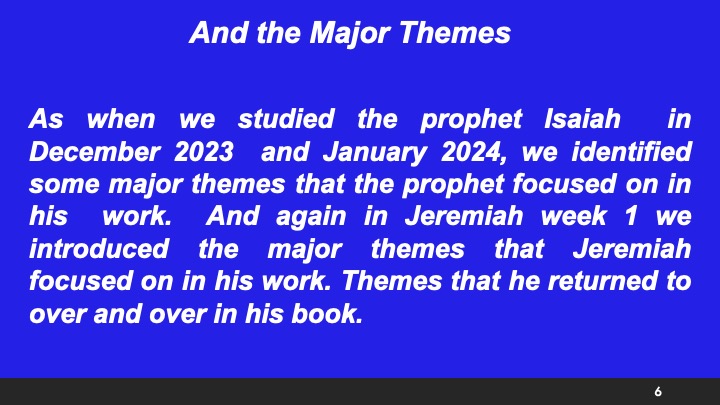
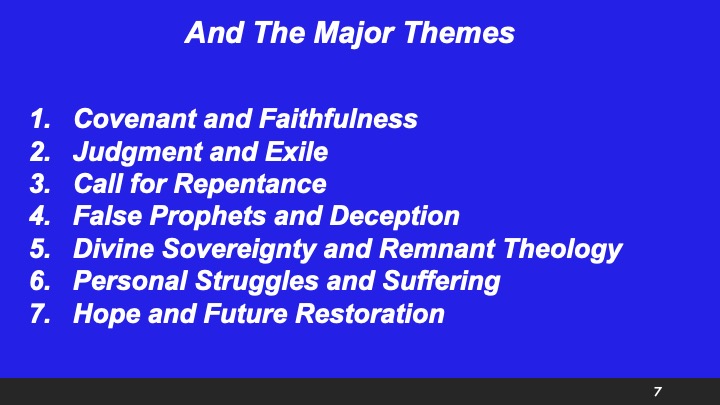

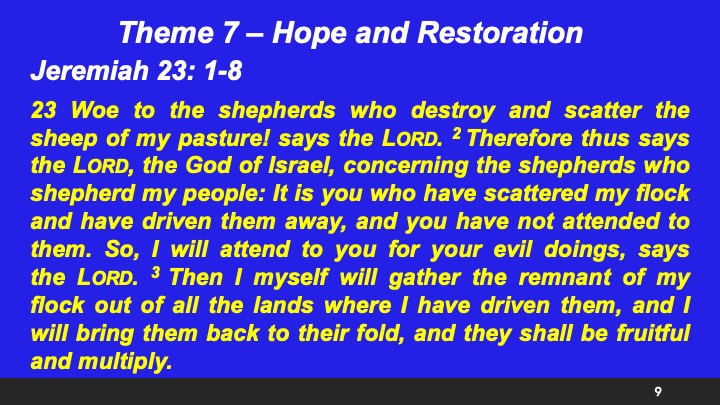
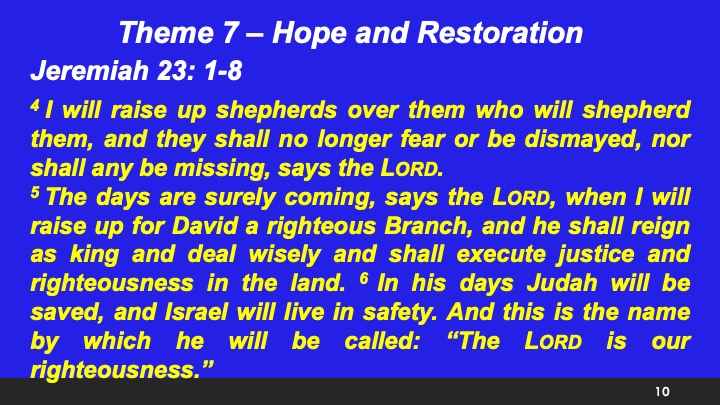
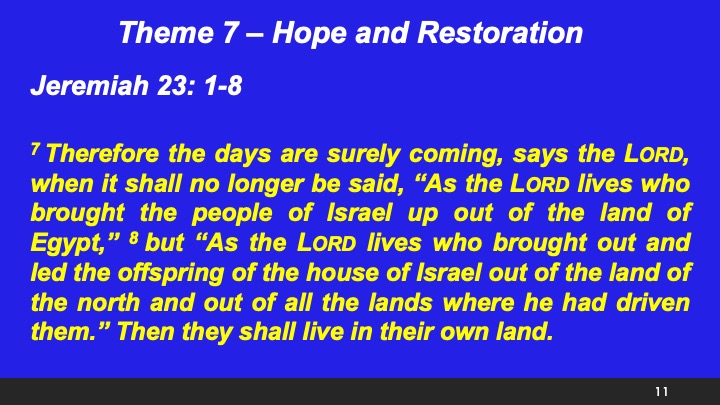
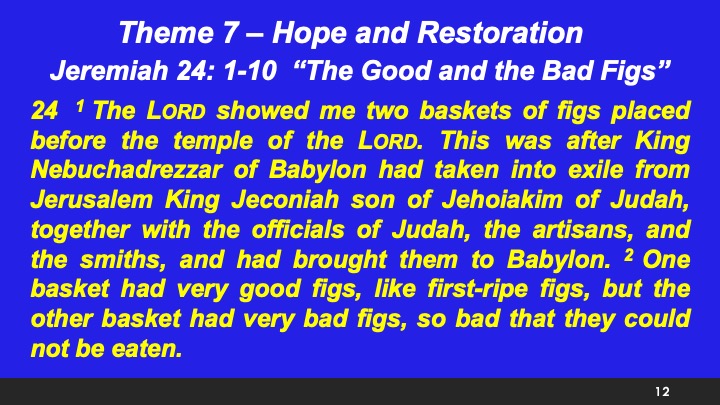
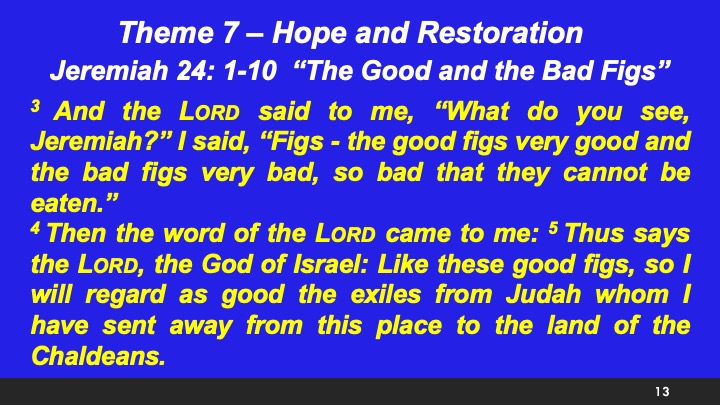
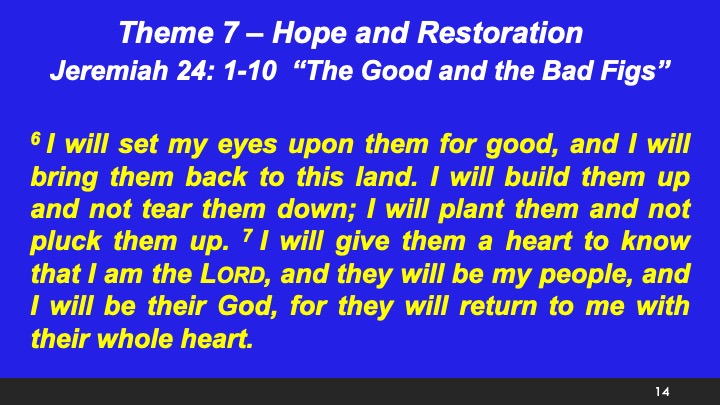
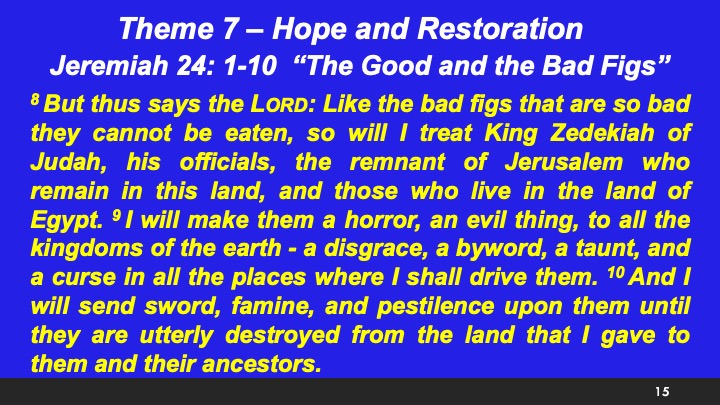
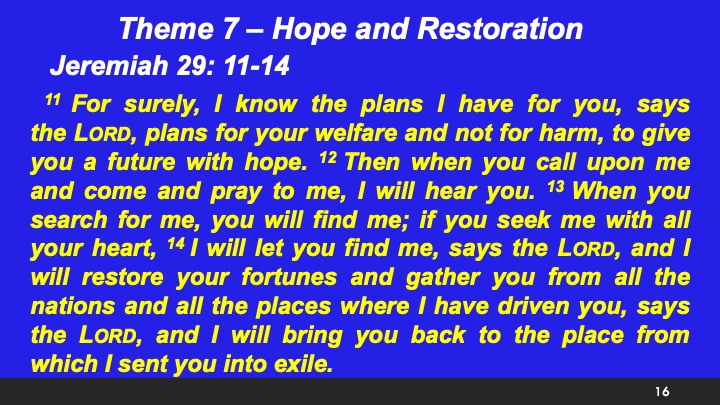
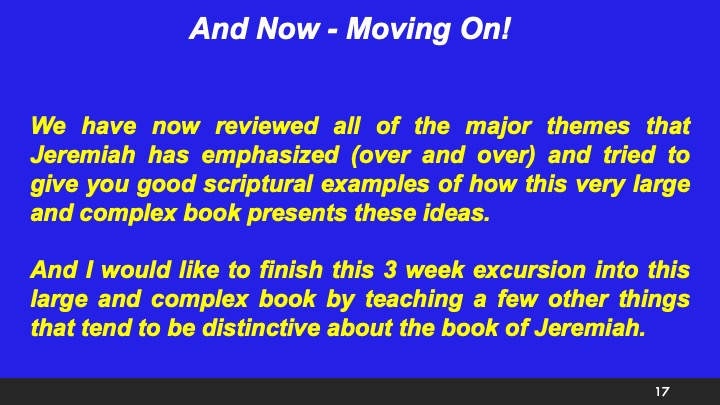
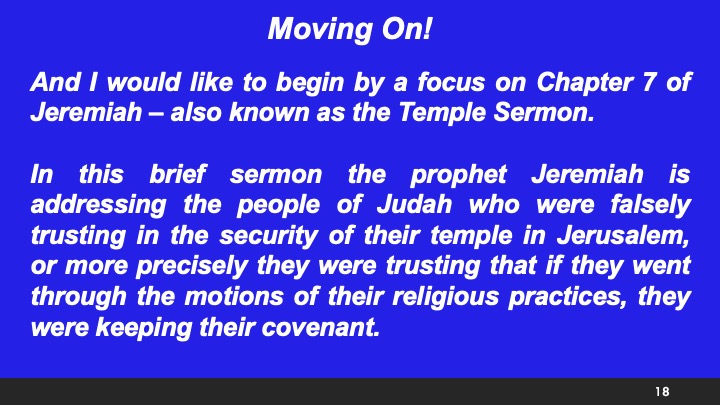
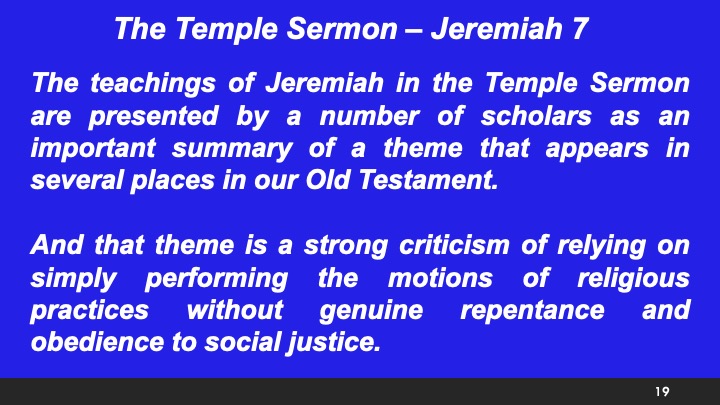
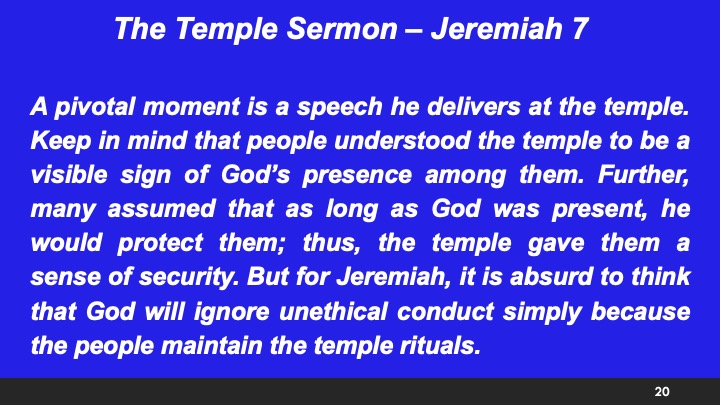
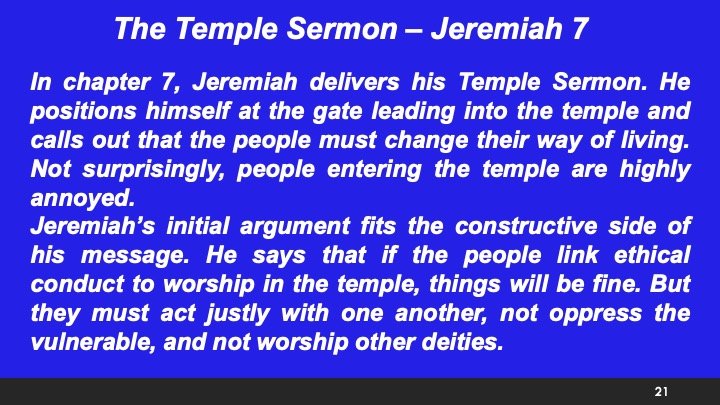
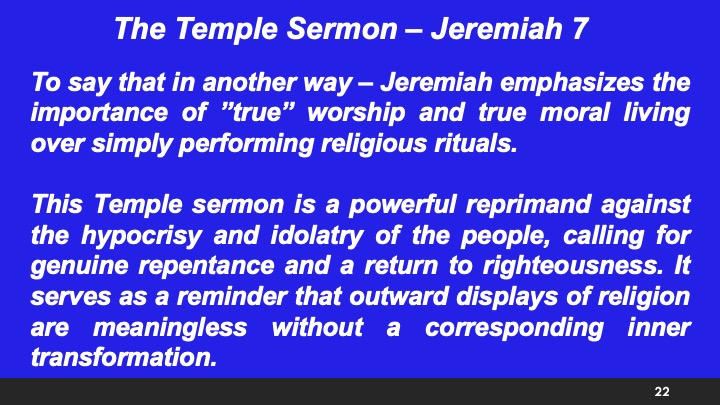
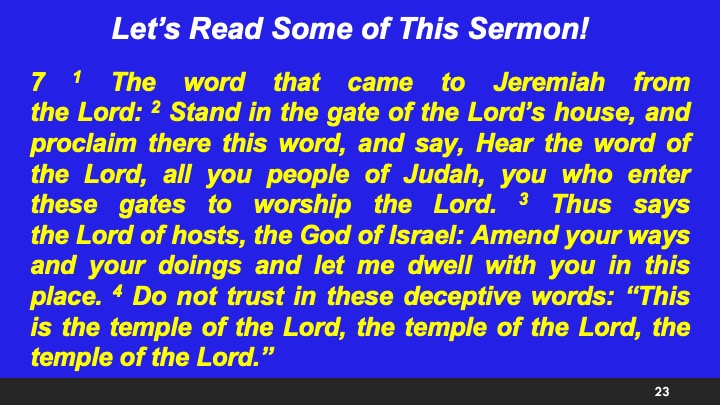
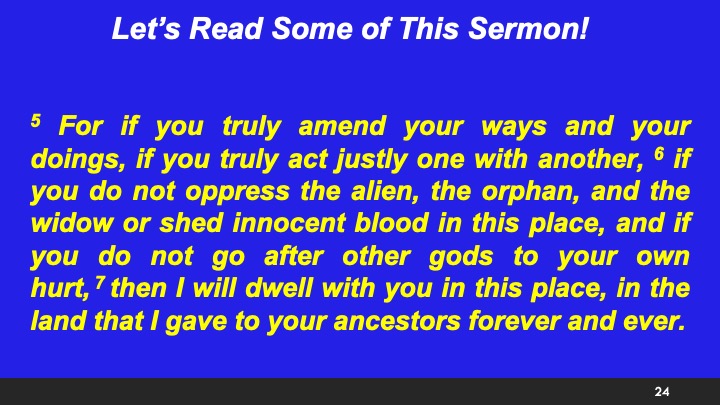
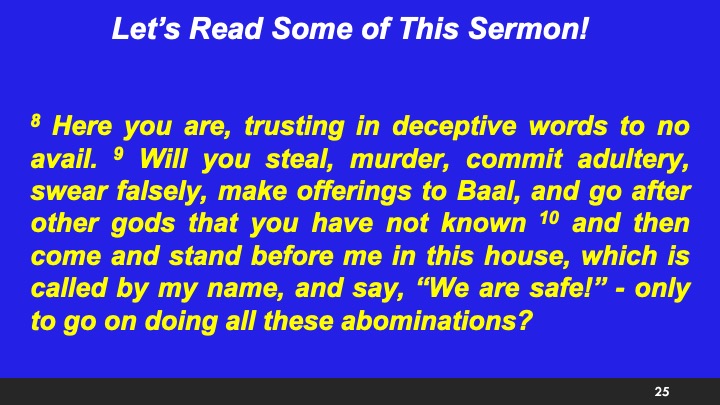
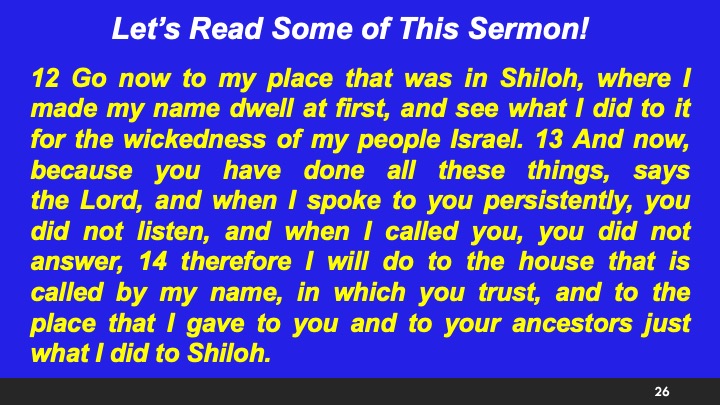
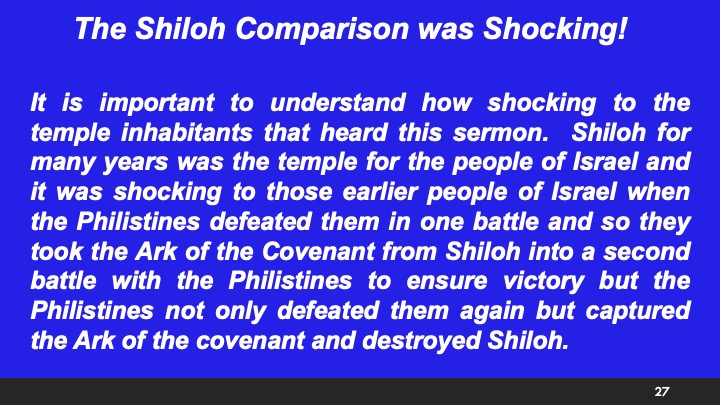
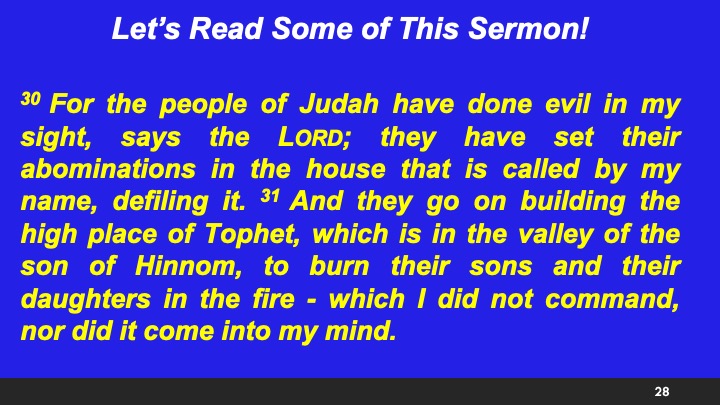
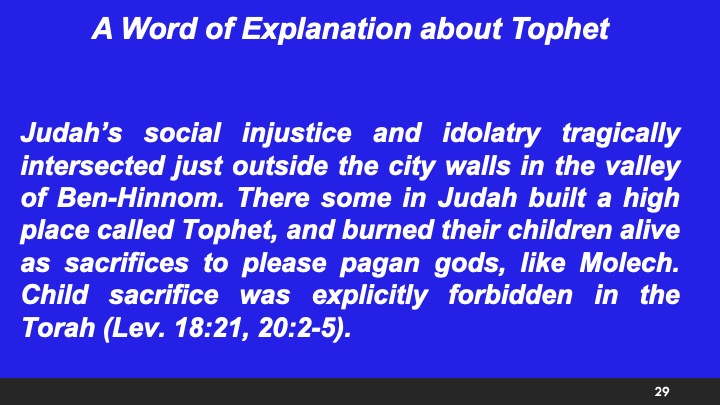
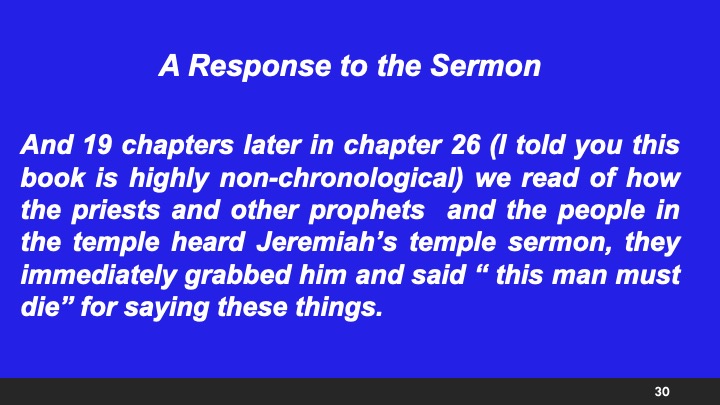
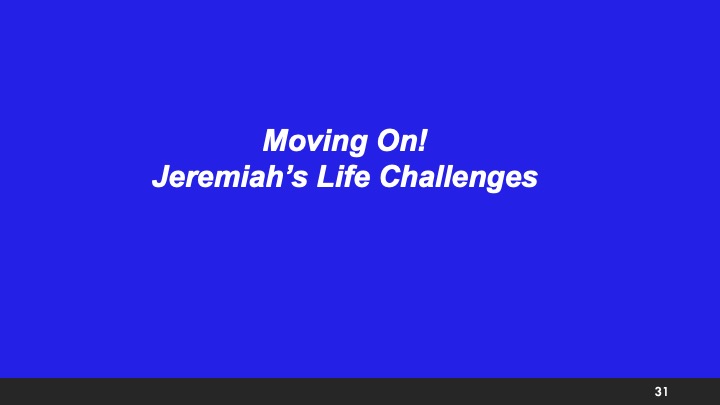
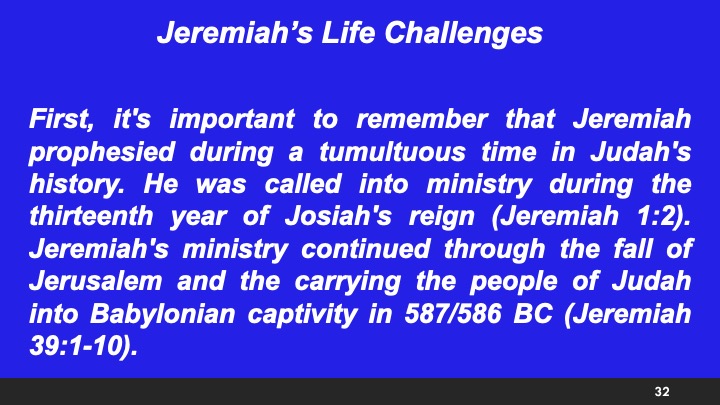
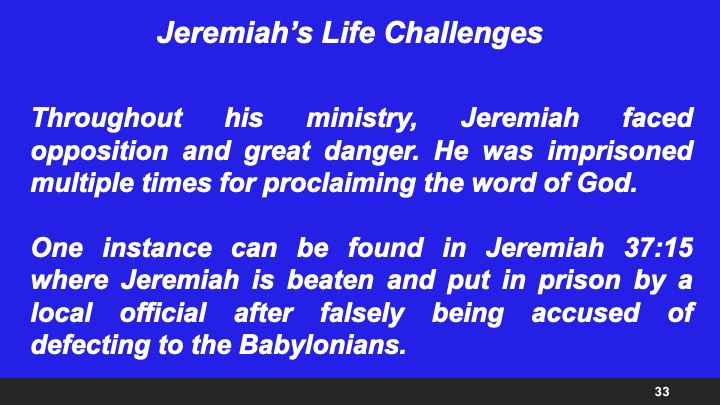
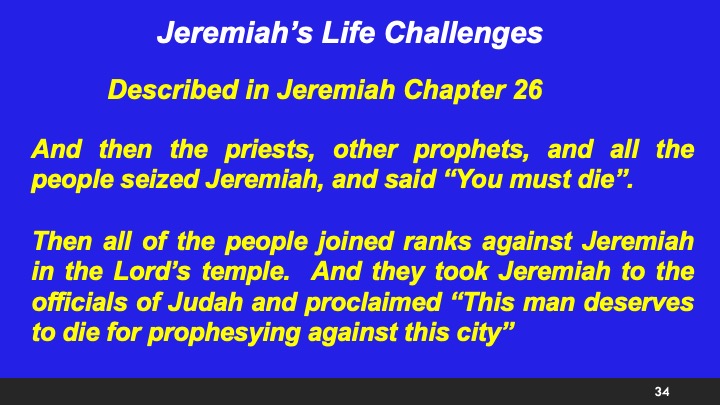
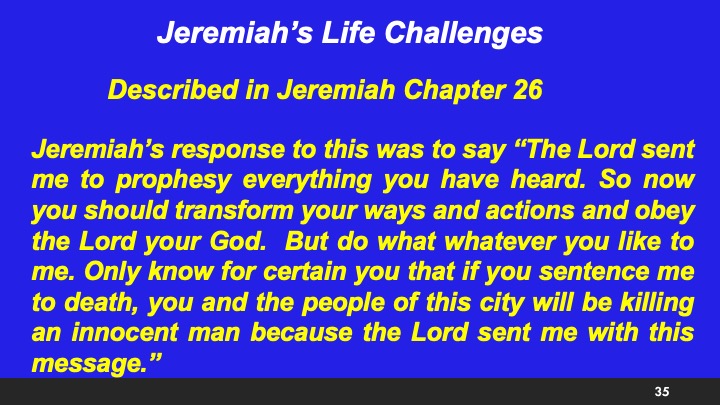
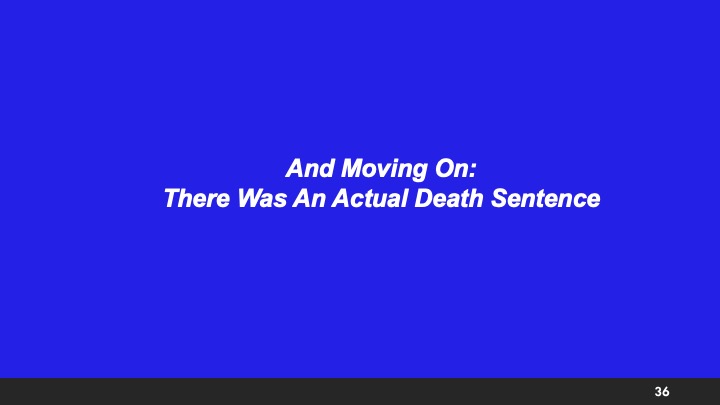
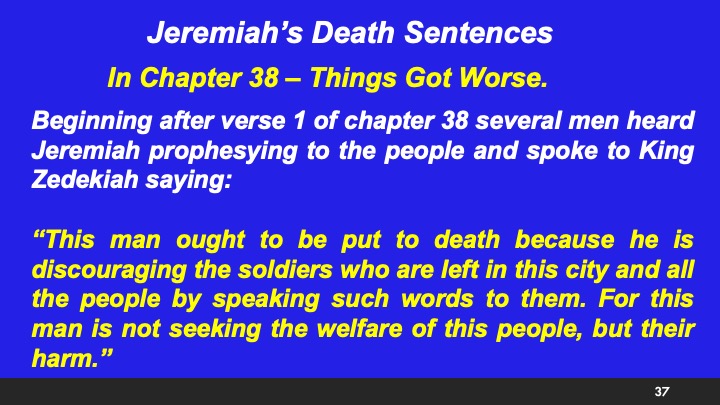
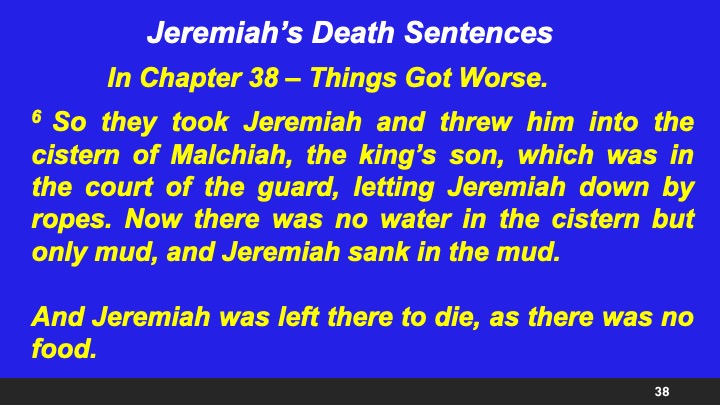
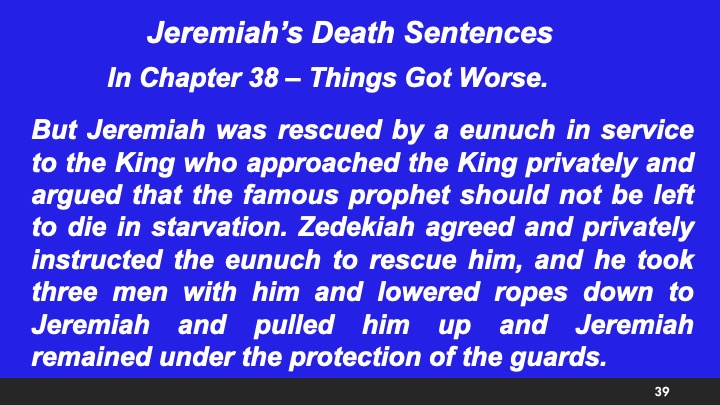
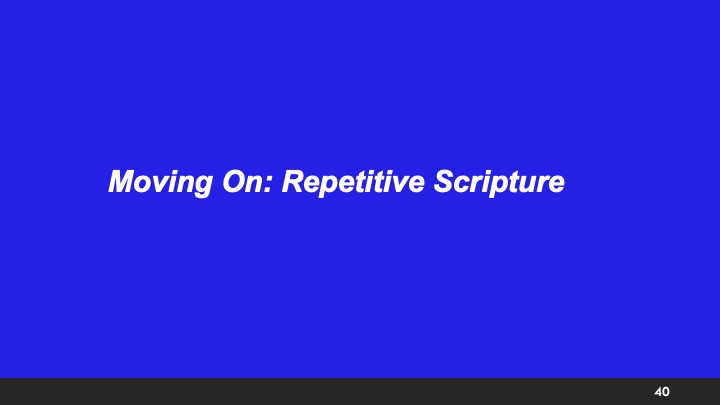
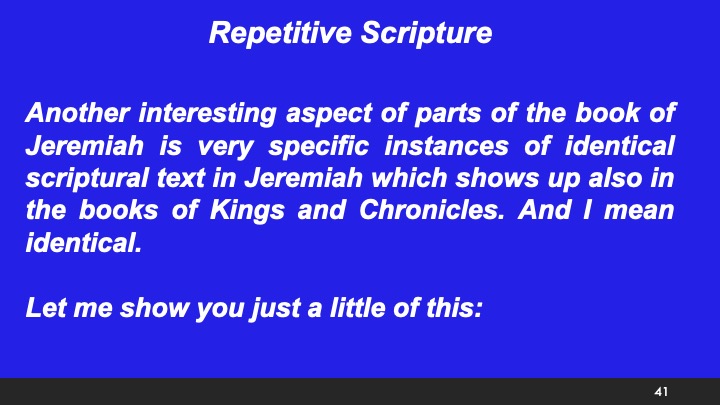
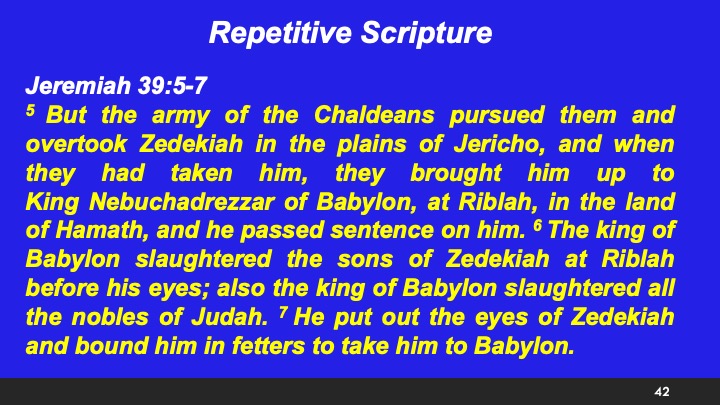
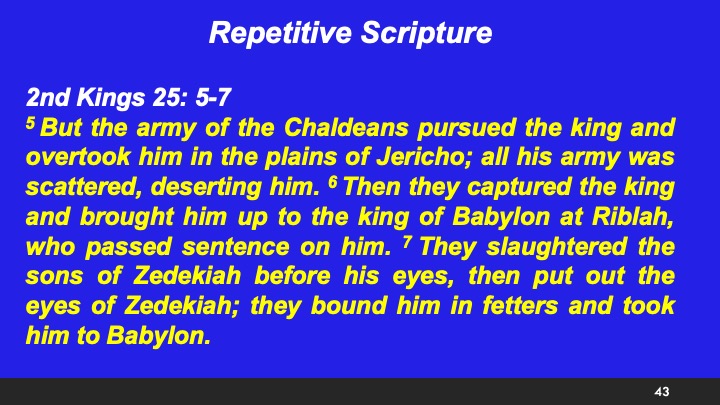
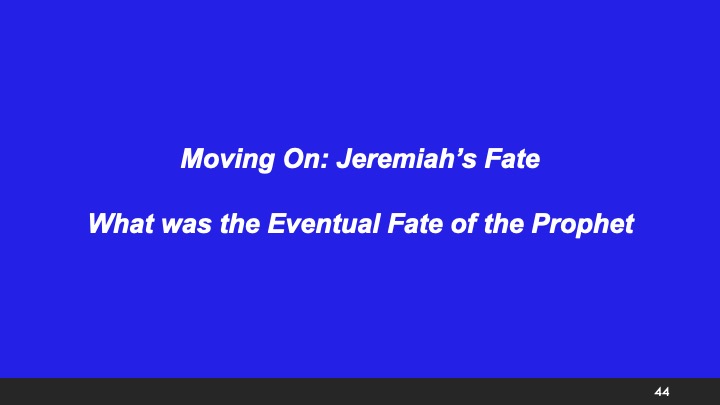
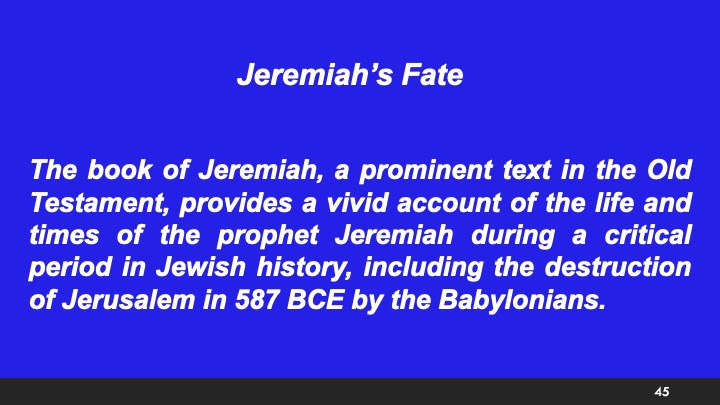
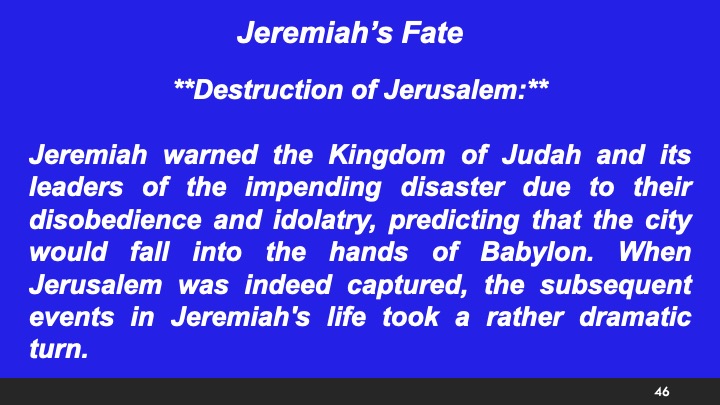
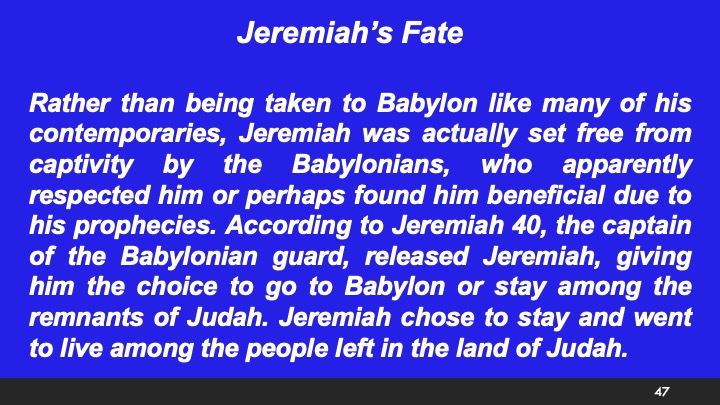
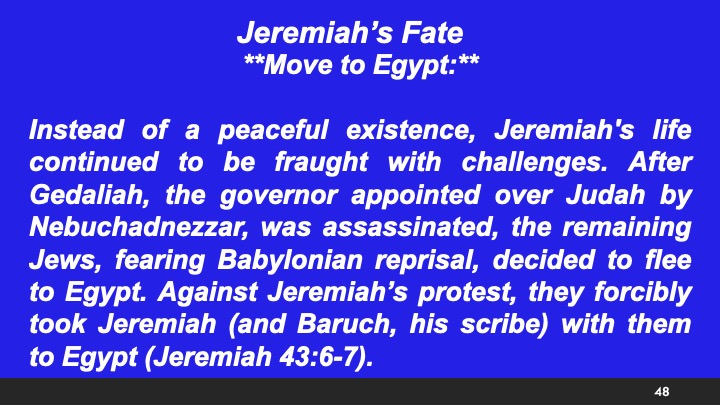
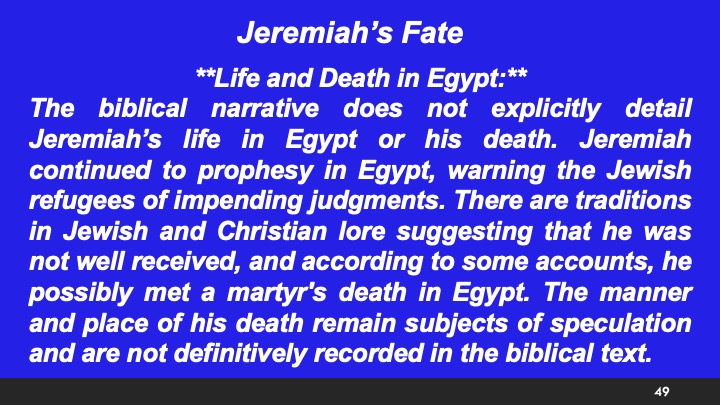
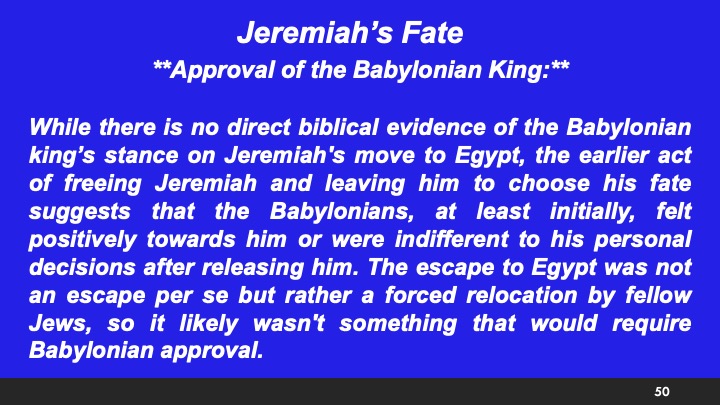
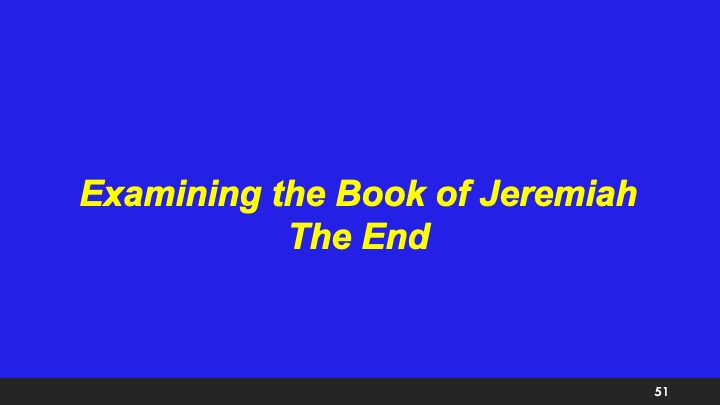
Examining the Book of Jeremiah 3
Links
< Home Page > < Examining Jeremiah Menu > < Top of Page >
Jeremiah – Part 3
We begin today with a brief review of what we emphasized last week. According to the narrative of the Book of Jeremiah, the prophet emerged as a significant figure in ancient Judah during the late 7th and early 6th centuries BCE.
Born into a priestly lineage, Jeremiah reluctantly accepted his call to prophethood, embarking on a over five-decade-long ministry. His life was marked by opposition, imprisonment, and personal struggles.
Historical Context
We also reviewed the historical context. The Book of Jeremiah is written against the backdrop of the socio-political turmoil in the late seventh and early sixth centuries BCE, during the time of the kings of Judah such as Josiah, Jehoiakim, Jehoiachin, and Zedekiah.
Jeremiah's ministry was active during the fall of the Neo - Assyrian Empire, the rise of the Neo - Babylonian Empire, the reform of King Josiah, and the subsequent return of Judah to serious idolatry, all of which eventually led to the destruction of Jerusalem and the Temple by the Babylonians in 586 B.C
Examining the Book of Jeremiah
The Scribe Baruch
We also spent some time on the subject of authorship of this very large prophetic work. Because Jeremiah had a personal traveling secretary (Baruch ben Neriah ) who, it is evident from the words of the book of Jeremiah, often delivered the words of Jeremiah to the leaders of Judah. Leading to a great deal of scholarly work on how much of the content was Jeremiah’s and how much was Baruch ben Neriah. Answer – we are not sure.
And the Major Themes
As when we studied the prophet Isaiah in December 2023 and January 2024, we identified some major themes that the prophet focused on in his work. And again in Jeremiah week 1 we introduced the major themes that Jeremiah focused on in his work. Themes that he returned to over and over in his book.
And The Major Themes
- Covenant and Faithfulness
- Judgment and Exile
- Call for Repentance
- False Prophets and Deception
- Divine Sovereignty and Remnant Theology
- Personal Struggles and Suffering
- Hope and Future Restoration
Examining the Book of Jeremiah
Theme 7:
Hope and Future Restoration: A Deeper Dive
Jeremiah 23: 1-9
23 Woe to the shepherds who destroy and scatter the sheep of my pasture! says the Lord. 2 Therefore thus says the Lord, the God of Israel, concerning the shepherds who shepherd my people: It is you who have scattered my flock and have driven them away, and you have not attended to them. So I will attend to you for your evil doings, says the Lord. 3 Then I myself will gather the remnant of my flock out of all the lands where I have driven them, and I will bring them back to their fold, and they shall be fruitful and multiply.
4 I will raise up shepherds over them who will shepherd them, and they shall no longer fear or be dismayed, nor shall any be missing, says the Lord.
5 The days are surely coming, says the Lord, when I will raise up for David a righteous Branch, and he shall reign as king and deal wisely and shall execute justice and righteousness in the land. 6 In his days Judah will be saved, and Israel will live in safety. And this is the name by which he will be called: “The Lord is our righteousness.”
7 Therefore the days are surely coming, says the Lord, when it shall no longer be said, “As the Lord lives who brought the people of Israel up out of the land of Egypt,” 8 but “As the Lord lives who brought out and led the offspring of the house of Israel out of the land of the north and out of all the lands where he had driven them.” Then they shall live in their own land.
Jeremiah 24: 1-10 “The Good and the Bad Figs”
24 1 The Lord showed me two baskets of figs placed before the temple of the Lord. This was after King Nebuchadrezzar of Babylon had taken into exile from Jerusalem King Jeconiah son of Jehoiakim of Judah, together with the officials of Judah, the artisans, and the smiths, and had brought them to Babylon. 2 One basket had very good figs, like first-ripe figs, but the other basket had very bad figs, so bad that they could not be eaten.
Jeremiah 24: 1-10 “The Good and the Bad Figs”
24 1 The Lord showed me two baskets of figs placed before the temple of the Lord. This was after King Nebuchadrezzar of Babylon had taken into exile from Jerusalem King Jeconiah son of Jehoiakim of Judah, together with the officials of Judah, the artisans, and the smiths, and had brought them to Babylon. 2 One basket had very good figs, like first-ripe figs, but the other basket had very bad figs, so bad that they could not be eaten.
3 And the Lord said to me, “What do you see, Jeremiah?” I said, “Figs - the good figs very good and the bad figs very bad, so bad that they cannot be eaten.”
4 Then the word of the Lord came to me: 5 Thus says the Lord, the God of Israel: Like these good figs, so I will regard as good the exiles from Judah whom I have sent away from this place to the land of the Chaldeans.
6 I will set my eyes upon them for good, and I will bring them back to this land. I will build them up and not tear them down; I will plant them and not pluck them up. 7 I will give them a heart to know that I am the Lord, and they will be my people, and I will be their God, for they will return to me with their whole heart.
8 But thus says the Lord: Like the bad figs that are so bad they cannot be eaten, so will I treat King Zedekiah of Judah, his officials, the remnant of Jerusalem who remain in this land, and those who live in the land of Egypt. 9 I will make them a horror, an evil thing, to all the kingdoms of the earth - a disgrace, a byword, a taunt, and a curse in all the places where I shall drive them. 10 And I will send sword, famine, and pestilence upon them until they are utterly destroyed from the land that I gave to them and their ancestors.
Examining the Book of Jeremiah
And Moving On Again!
And I would like to begin by a focus on Chapter 7 of Jeremiah – also known as the Temple Sermon.
In this brief sermon the prophet Jeremiah is addressing the people of Judah who were falsely trusting in the security of their temple in Jerusalem, or more precisely they were trusting that if they went through the motions of their religious practices, they were keeping their covenant.
The Temple Sermon – Jeremiah 7
The teachings of Jeremiah in the Temple Sermon are presented by a number of scholars as an important summary of a theme that appears in several places in our Old Testament.
And that theme is a strong criticism of relying on simply performing the motions of religious practices without genuine repentance and obedience to social justice.
A pivotal moment is a speech he delivers at the temple. Keep in mind that people understood the temple to be a visible sign of God’s presence among them. Further, many assumed that as long as God was present, he would protect them; thus, the temple gave them a sense of security. But for Jeremiah, it is absurd to think that God will ignore unethical conduct simply because the people maintain the temple rituals.
In chapter 7, Jeremiah delivers his Temple Sermon. He positions himself at the gate leading into the temple and calls out that the people must change their way of living. Not surprisingly, people entering the temple are highly annoyed.
Jeremiah’s initial argument fits the constructive side of his message. He says that if the people link ethical conduct to worship in the temple, things will be fine. But they must act justly with one another, not oppress the vulnerable, and not worship other deities.
To say that in another way – Jeremiah emphasizes the importance of ”true” worship and true moral living over simply performing religious rituals.
This Temple sermon is a powerful reprimand against the hypocrisy and idolatry of the people, calling for genuine repentance and a return to righteousness. It serves as a reminder that outward displays of religion are meaningless without a corresponding inner transformation.
Let’s Read Some of This Sermon!
7 1 The word that came to Jeremiah from the Lord: 2 Stand in the gate of the Lord’s house, and proclaim there this word, and say, Hear the word of the Lord, all you people of Judah, you who enter these gates to worship the Lord. 3 Thus says the Lord of hosts, the God of Israel: Amend your ways and your doings and let me dwell with you in this place. 4 Do not trust in these deceptive words: “This is the temple of the Lord, the temple of the Lord, the temple of the Lord.”
5 For if you truly amend your ways and your doings, if you truly act justly one with another, 6 if you do not oppress the alien, the orphan, and the widow or shed innocent blood in this place, and if you do not go after other gods to your own hurt, 7 then I will dwell with you in this place, in the land that I gave to your ancestors forever and ever.
8 Here you are, trusting in deceptive words to no avail. 9 Will you steal, murder, commit adultery, swear falsely, make offerings to Baal, and go after other gods that you have not known 10 and then come and stand before me in this house, which is called by my name, and say, “We are safe!” - only to go on doing all these abominations?
12 Go now to my place that was in Shiloh, where I made my name dwell at first, and see what I did to it for the wickedness of my people Israel. 13 And now, because you have done all these things, says the Lord, and when I spoke to you persistently, you did not listen, and when I called you, you did not answer, 14 therefore I will do to the house that is called by my name, in which you trust, and to the place that I gave to you and to your ancestors just what I did to Shiloh.
The Shiloh Comparison was Shocking!
It is important to understand how shocking to the temple inhabitants that heard this sermon. Shiloh for many years was the temple for the people of Israel and it was shocking to those earlier people of Israel when the Philistines defeated them in one battle and so they took the Ark of the Covenant from Shiloh into a second battle with the Philistines to ensure victory but the Philistines not only defeated them again but captured the Ark of the covenant and destroyed Shiloh.
30 For the people of Judah have done evil in my sight, says the Lord; they have set their abominations in the house that is called by my name, defiling it. 31 And they go on building the high place of Topheth, which is in the valley of the son of Hinnom, to burn their sons and their daughters in the fire - which I did not command, nor did it come into my mind.
A word of explanation about Topheth
Judah’s social injustice and idolatry tragically intersected just outside the city walls in the valley of Ben-Hinnom. There some in Judah built a high place called Topheth, and burned their children alive as sacrifices to please pagan gods, like Molech. Child sacrifice was explicitly forbidden in the Torah (Lev. 18:21, 20:2-5).
Examining the Book of Jeremiah
And Moving On Again!
Jeremiah’s Life Challenges
First, it's important to remember that Jeremiah prophesied during a tumultuous time in Judah's history. He was called into ministry during the thirteenth year of Josiah's reign (Jeremiah 1:2). Jeremiah's ministry continued through the fall of Jerusalem and the carrying the people of Judah into Babylonian captivity in 587/586 BC (Jeremiah 39:1-10).
Throughout his ministry, Jeremiah faced opposition and great danger. He was imprisoned multiple times for proclaiming the word of God.
One instance can be found in Jeremiah 37:15 where Jeremiah is beaten and put in prison by a local official after falsely being accused of defecting to the Babylonians.
And in another incident described in Jeremiah Chapter 26
And then the priests, other prophets, and all the people seized Jeremiah, and said “You must die”.
Then all of the people joined ranks against Jeremiah in the Lord’s temple. And they took Jeremiah to the officials of Judah and proclaimed “This man deserves to die for prophesying against this city”
Jeremiah’s response to this was to say “The Lord sent me to prophesy everything you have heard. So now you should transform your ways and actions and obey the Lord your God. But do what whatever you like to me. Only know for certain you that if you sentence me to death, you and the people of this city will be killing an innocent man because the Lord sent me with this message.”
But as a result of this the accusers relented on the death sentence.
But now we see Jeremiah’s Death Sentence
In Chapter 38 – Things Got Worse.
Beginning after verse 1 of chapter 38 several men heard Jeremiah prophesying to the people and spoke to King Zedekiah saying:
“This man ought to be put to death because he is discouraging the soldiers who are left in this city and all the people by speaking such words to them. For this man is not seeking the welfare of this people, but their harm.”
6 So they took Jeremiah and threw him into the cistern of Malchiah, the king’s son, which was in the court of the guard, letting Jeremiah down by ropes. Now there was no water in the cistern but only mud, and Jeremiah sank in the mud.
And Jeremiah was left there to die, as there was no food.
But Jeremiah was rescued by a eunuch in service to the King who approached the King privately and argued that the famous prophet should not be left to die in starvation. Zedekiah agreed and privately instructed the eunuch to rescue him, and he took three men with him and lowered ropes down to Jeremiah and pulled him up and Jeremiah remained under the protection of the King’s guards.
Examining the Book of Jeremiah
And Now – Moving On Again
Another interesting aspect of parts of the book of Jeremiah is very specific instances of identical scriptural text in Jeremiah which shows up also in the books of Kings and Chronicles. And I mean identical.
Let me show you just a little of this:
Jeremiah 39:5-7
5 But the army of the Chaldeans pursued them and overtook Zedekiah in the plains of Jericho, and when they had taken him, they brought him up to King Nebuchadrezzar of Babylon, at Riblah, in the land of Hamath, and he passed sentence on him. 6 The king of Babylon slaughtered the sons of Zedekiah at Riblah before his eyes; also the king of Babylon slaughtered all the nobles of Judah. 7 He put out the eyes of Zedekiah and bound him in fetters to take him to Babylon.
2nd Kings 25: 5-7
5 But the army of the Chaldeans pursued the king and overtook him in the plains of Jericho; all his army was scattered, deserting him. 6 Then they captured the king and brought him up to the king of Babylon at Riblah, who passed sentence on him. 7 They slaughtered the sons of Zedekiah before his eyes, then put out the eyes of Zedekiah; they bound him in fetters and took him to Babylon.
As you can see - almost exactly identical. And there are others we could show!
Examining the Book of Jeremiah
And Moving On Again: Jeremiah’s Fate
What was the Eventual Fate of the Prophet
The book of Jeremiah, a prominent text in the Old Testament, provides a vivid account of the life and times of the prophet Jeremiah during a critical period in Jewish history, including the destruction of Jerusalem in 587 BCE by the Babylonians.
**Destruction of Jerusalem:**
Jeremiah warned the Kingdom of Judah and its leaders of the impending disaster due to their disobedience and idolatry, predicting that the city would fall into the hands of Babylon. When Jerusalem was indeed captured, the subsequent events in Jeremiah's life took a rather dramatic turn.
Rather than being taken to Babylon like many of his contemporaries, Jeremiah was actually set free from captivity by the Babylonians, who apparently respected him or perhaps found him beneficial due to his prophecies. According to Jeremiah 40, the captain of the Babylonian guard, released Jeremiah, giving him the choice to go to Babylon or stay among the remnants of Judah. Jeremiah chose to stay and went to live among the people left in the land of Judah.
**Move to Egypt:**
Instead of a peaceful existence, Jeremiah's life continued to be fraught with challenges. After Gedaliah, the governor appointed over Judah by Nebuchadnezzar, was assassinated, the remaining Jews, fearing Babylonian reprisal, decided to flee to Egypt. Against Jeremiah’s protest, they forcibly took Jeremiah (and Baruch, his scribe) with them to Egypt (Jeremiah 43:6-7).
**Life and Death in Egypt:**
The biblical narrative does not explicitly detail Jeremiah’s life in Egypt or his death. Jeremiah continued to prophesy in Egypt, warning the Jewish refugees of impending judgments. There are traditions in Jewish and Christian lore suggesting that he was not well received, and according to some accounts, he possibly met a martyr's death in Egypt. The manner and place of his death remain subjects of speculation and are not definitively recorded in the biblical text.
**Approval of the Babylonian King:**
While there is no direct biblical evidence of the Babylonian king’s stance on Jeremiah's move to Egypt, the earlier act of freeing Jeremiah and leaving him to choose his fate suggests that the Babylonians, at least initially, felt positively towards him or were indifferent to his personal decisions after releasing him. The escape to Egypt was not an escape per se but rather a forced relocation by fellow Jews, so it likely wasn't something that would require Babylonian approval.
Examining the Book of Jeremiah
The End